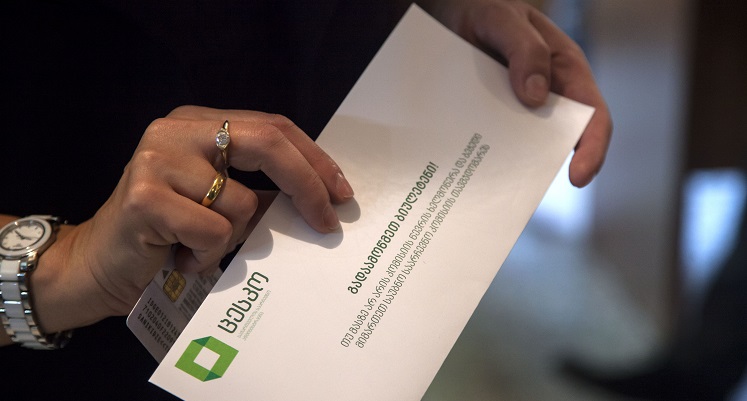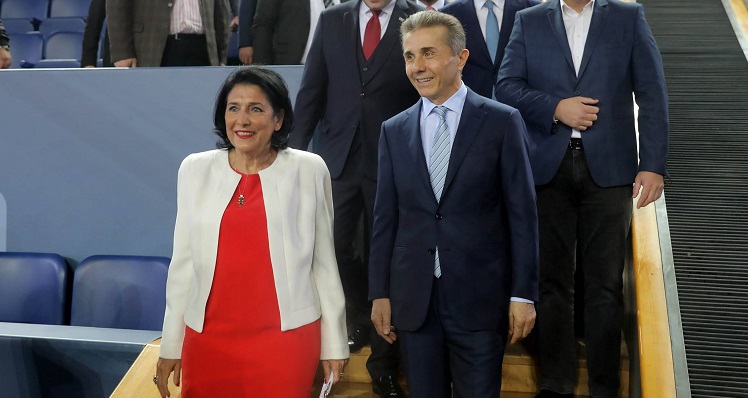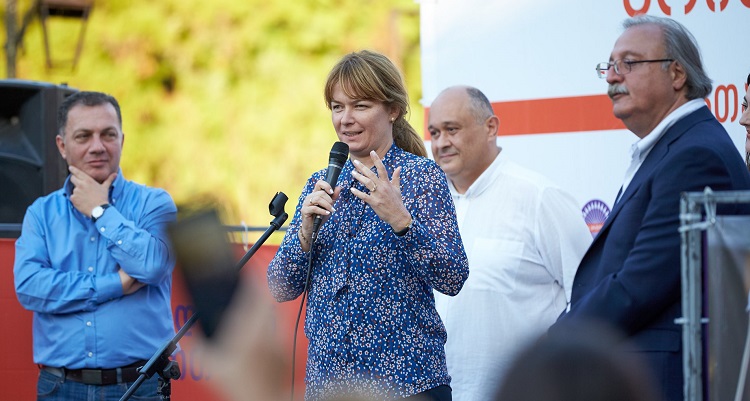Why are Sunday’s presidential elections so special? Key election changes and data

The president elected via the 28 October race will be the last one elected by direct vote. Photo: N.Alavidze/Agenda.ge.
Georgia is electing its fifth president on Sunday and for the first time in the Georgian history a female candidate has a real chance to take the post. The candidate elected through the 28 October presidential race will serve in the role for six years in his/her first term, as is stated by the new version of the Georgian constitution.
The victorious candidate will be the last president of Georgia to be elected by the people via direct vote.
What are the president’s rights?
President’s rights have been restricted by constitutional changes initiated and implemented by the United National Movement leadership in 2010, which made the prime minister, not the president, the key decision-maker in the country.
In 2017 the Georgian Dream leadership approved amendments to the constitution to make Georgia a “truly parliamentary republic,” which was not ensured by the previous changes as they claimed, and to make the rights and obligations of state officials clear.
- Based on the current constitution, the president remains the commander-in-chief, the head of state and the country’s top representative for foreign affairs, with no genuine levers to run the country. The president has to play a role of an “arbiter” between the government and parliament to ensure balance between state institutions.
- The president will no longer chair the National Security Council, which is currently tasked to discuss defence and security issues.
- The next president will no longer be elected through direct vote. There will be 300 delegates from Tbilisi and regions who will elect the president, whose age must be 40 and over.
- To be elected as a president a candidate must have lived in Georgia for at least 15 years before the elections.
- The president will not have the right to raise issues for discussion at the governmental meeting and participate in the meetings.
- A candidate may run twice for presidency and each term lasts five years.
 Salome Zurabishvili,66, was born in Paris in a family of Georgian political emigrants. The ruling party says the independent candidate has "complete support" from the ruling party. Photo: Salome Zurabishvili's press office.
Salome Zurabishvili,66, was born in Paris in a family of Georgian political emigrants. The ruling party says the independent candidate has "complete support" from the ruling party. Photo: Salome Zurabishvili's press office.
How many candidates are running for the upcoming elections?
Georgian voters will have to make their choices among 25 presidential candidates, only two candidates are female.
One of the female candidates Salome Zurabishvili, who is running as an independent candidate, is supported by the Georgian Dream ruling party in the elections.
Surveys which have been conducted so far by media outlets and political parties claim that the most supported candidates are Zurabishvili, a candidate named by 10 opposition parties Grigol Vashadze, candidate of the European Georgia opposition parry David Bakradze, leader of the Labour Party Shalva Natelashvili and the founder of the Movement of Building David Usupashvili.
 Grigol Vashadze (R) says that he will return former President Mikheil Saakashvili to Georgia. Photo: Grigol Vashadze's press office.
Grigol Vashadze (R) says that he will return former President Mikheil Saakashvili to Georgia. Photo: Grigol Vashadze's press office.
Who will observe the elections?
- 62 local observing organisations.
- 58 international observing organisations.
- 95 media organisations have been registered to cover the Election Day.
Key election procedures and dates
3,600 polling stations around the country will open at 8 am and close at 8 pm on 28 October.
The Central Election Commission has 20 days as a maximum after the Election Day to have the final tally.
If no candidate receives more than half of the votes (50+1) , a runoff will be held between two top candidates.
 David Bakradze, former parliament speaker under the United National Movement leadership, says it is no time for revenge. Photo: David Bakradze press office.
David Bakradze, former parliament speaker under the United National Movement leadership, says it is no time for revenge. Photo: David Bakradze press office.
Voters
3,518,890 voters have the right to cast ballots in the elections.
14,808 of all eligible voters are registered abroad. 59 polling stations will open for them in 44 countries. Two additional polling stations were opened in Afghanistan for Georgian soldiers, who have already cast votes.
 Tweet
Tweet  Share
Share